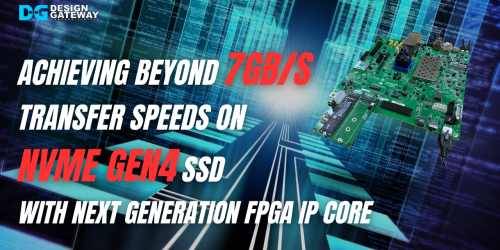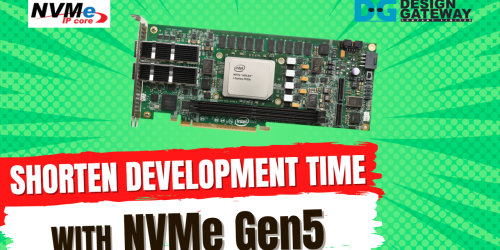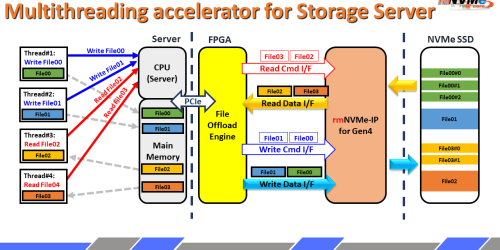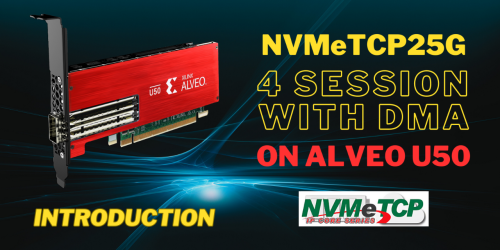NVMe IP Gen5 : Your Gateway to Next-Level Data Storage Speeds

We would like to introduce you to the latest cutting-edge technology in storage solutions. We excited to present to you the NVMe-IP Gen5, the newest addition to our data storage IP core family.
The NVMe-IP Gen5 is a host controller designed to access the latest NVMe Gen5 SSD, the pinnacle of storage technology.
It’s no secret that today’s world demands high-speed data transfer, and the NVMe-IP Gen5 has it all. With a lightning-fast speed of up to 16 Gbytes/sec line rate, this product is the solution for transferring massive files, streaming high-quality content, or running intensive applications.

Let me talk about the new upgrade features of the NVMe Gen5 SSD compared to its predecessor, the NVMe Gen4 SSD.
The PCIe Gen5 technology, which is the next generation after PCIe Gen4, employs advanced techniques that enhance the physical layer of the transfer performance.
As a result, the transfer speed is now double that of PCIe Gen4. With a line rate of 32 Gbits/sec for each PCIe Gen5 lane, the maximum line rate for NVMe Gen5 SSD using four lanes can reach up to 16 Gbytes/sec.
However, recent reports on the storage market indicate that the actual speed of NVMe Gen5 SSD is reduced to 80% of the line rate due to the overhead time required to handle the NVMe and PCIe protocols.
As a result, the NVMe Gen5 SSD can achieve a maximum write speed of 12,000 Mbytes/sec and a maximum read speed of 13,000 Mbytes/sec. When compared to the current reports for PCIe Gen4, the write speed of NVMe SSDs is currently found to be 6,900 Mbytes/sec, while the read speed is 7,450 Mbytes/sec.
This means that the performance improvement of NVMe Gen5 SSDs over NVMe Gen4 SSDs is about 74%. This significant boost in performance will undoubtedly enhance your computing experience.

We would like to show the latest FPGA product from Intel, the Agilex 7 FPGA I-series, which is designed to keep up with the fast-evolving PCIe Gen5 technology.
The product is equipped with a Hard IP core for PCIe Gen5 connection, making it the ideal solution for high-speed data transfer applications.
We’ve integrated the NVMe-IP for Gen5 from Design Gateway with the PCIe Hard IP Core, creating a complete solution for writing and reading data with NVMe Gen5 SSD using FPGA platform.
With this integrated solution, users can easily develop their systems for accessing the NVMe Gen5 SSD and achieve faster data transfer rates in a shorter amount of time.

Now we will demonstrate the outstanding performance of our NVMe-IP for Gen5 product on the Agilex I-series board. To give you a better idea of how our products work, we’ve set up a demo of reading and writing data in a real test environment.
Our demo features the latest adapter board, the AB19 M.2 to PCIe adapter board, which connects the NVMe Gen5 SSD to the FPGA board. This adapter board ensures smooth and seamless data transfer between the NVMe Gen5 SSD and the FPGA board.

We would like to share the write performance of our NVMe-IP for Gen5 product. To accurately measure the actual performance of data transfer, we’ve designed a test logic that writes data at the peak bandwidth and applies a random pattern, LFSR, to the test.
To showcase the peak performance, we used a transfer size of 128 GB, which is a large size that can be completed before the internal cache in the SSD is full.
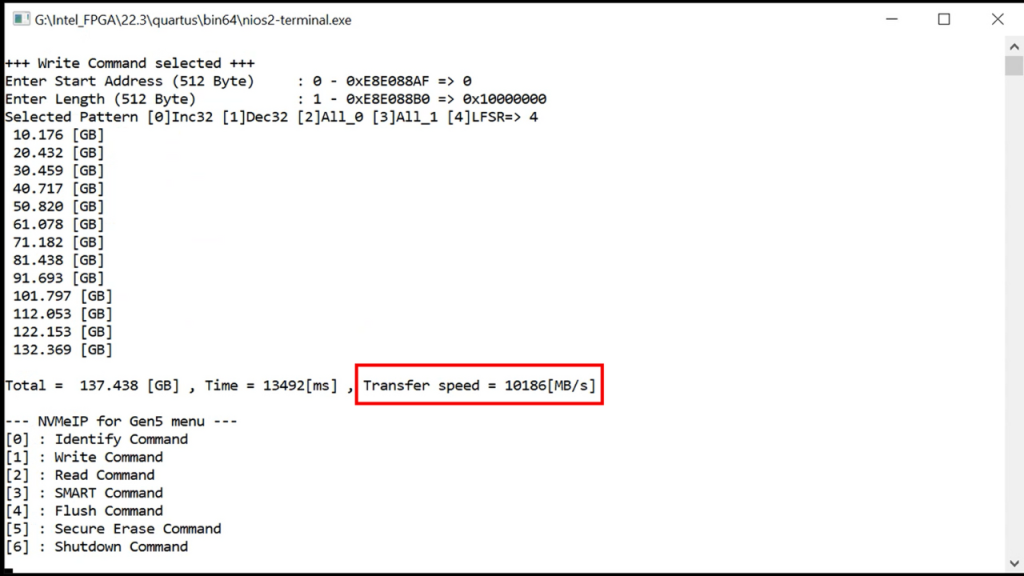
The report shows an outstanding write speed of 10,186 MB/s using a 2 TB CFD Gaming Gen5 SSD.
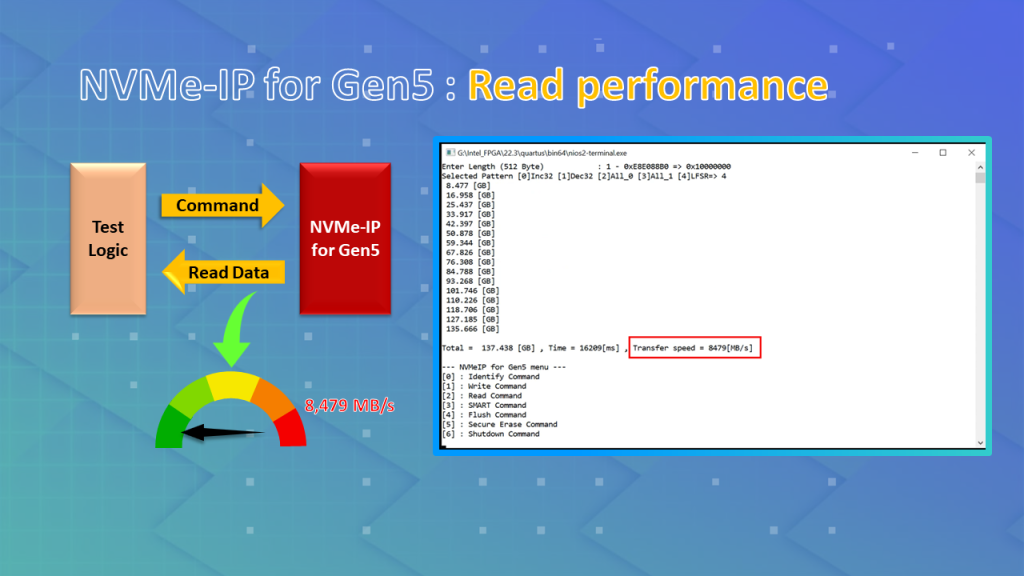
On the contrary, the read command using the same SSD, the 128-Gbyte size, and LFSR pattern is demonstrated.
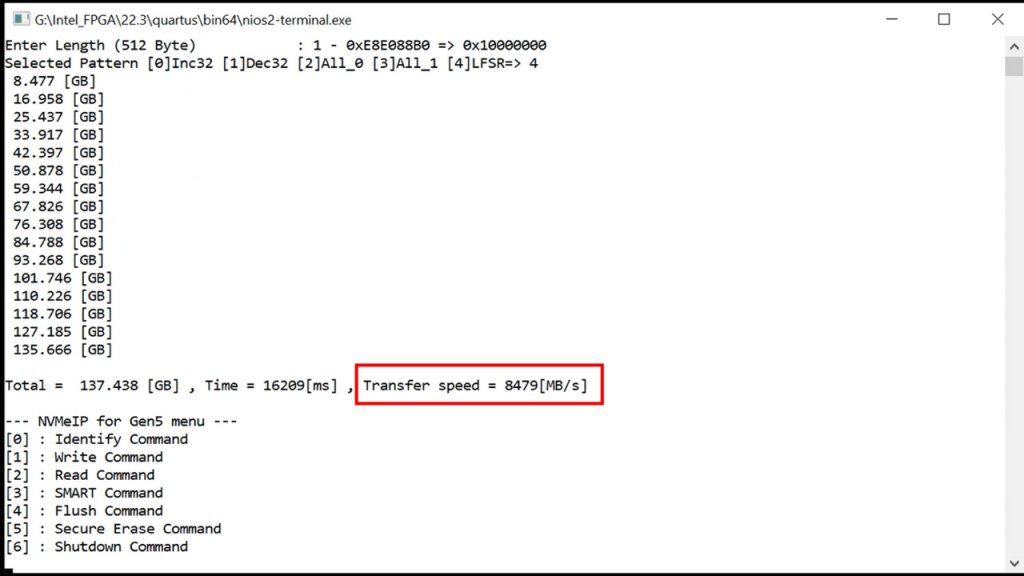
It achieves 8,479 Mbytes/sec for this SSD.
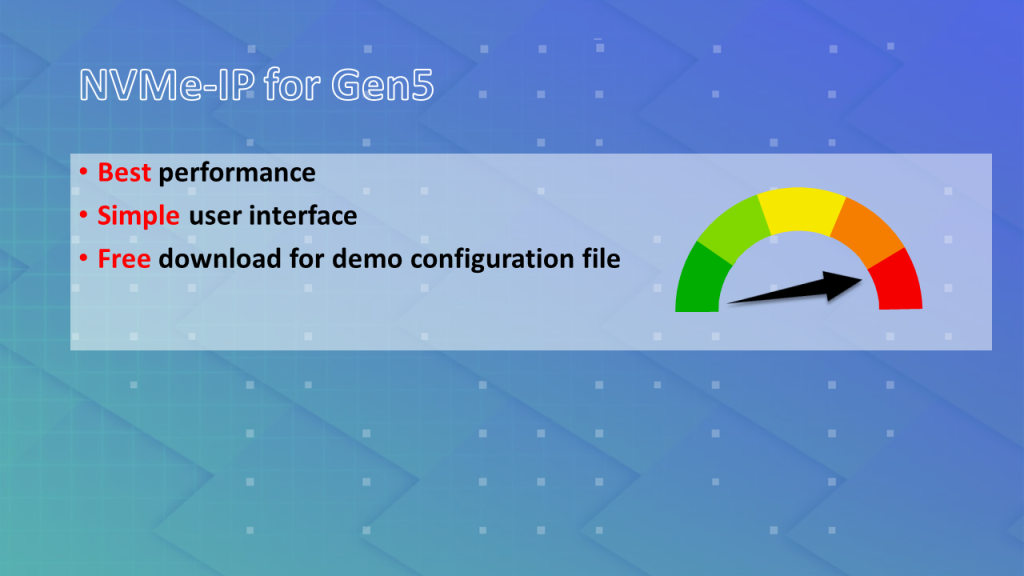
In conclusion, we are proud to offer our NVMe-IP for Gen5 product as the solution that can help you achieve exceptional performance in your data transfer operations.
With our product, you can enjoy fast and reliable data transfer that can help you improve your productivity and get your projects done quickly and efficiently.
You can visit our website design-gateway.com, to learn more about our product and to download the demo file, which is available free of charge.
Article about NVMe-IP Gen 5

